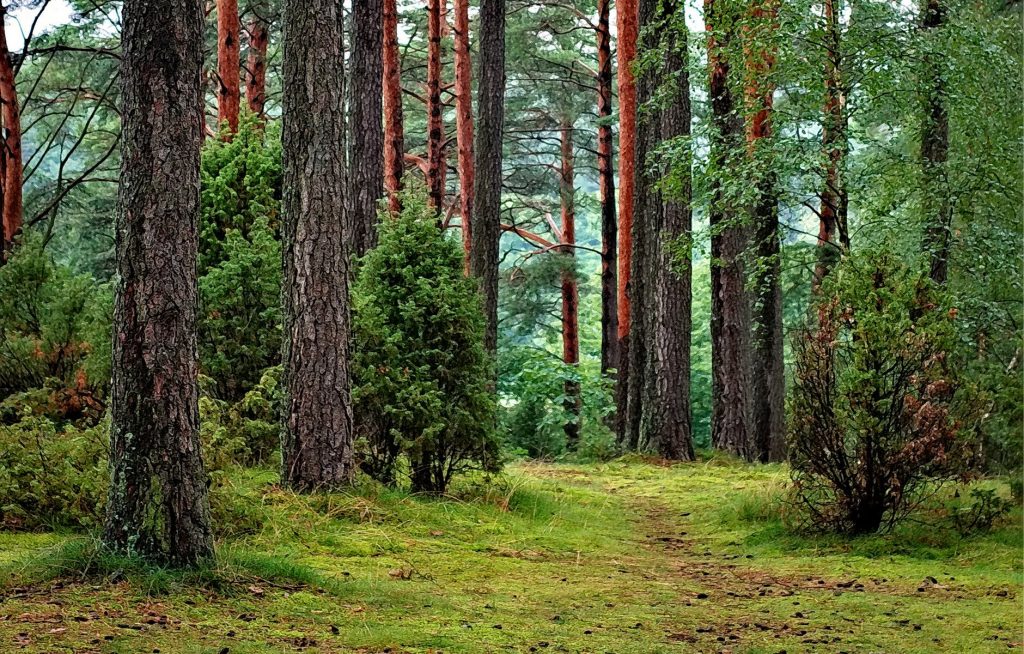Earth Day, Good Deeds Day & bal taschit: Each of us can make a difference every day

By Leah Persky • Family Life Education Program Manager

Leah Persky
Each year Earth Day is celebrated on April 22. Today we tend to think of it as a celebration or as a call to action to do something good for our local and global community. The first Earth Day in 1970 was different. It was about social activism and protest; a way to bring awareness and attention to the real challenges of pollution, climate change, deforestation, and unsustainable economic growth. In 1970, more than 20 million Americans across the country took part in the day with demonstrations and rallies. The outrage and awareness about the ill-health of our planet and the general unhappiness with the status quo of pollution and environmental degradation were the catalyst behind the first Earth Day.
The founder of Earth Day was Gaylord Nelson, a U.S. Senator from Wisconsin. He was inspired to create this annual holiday after witnessing the horrible aftermath of a 1969 oil spill in Santa Barbara, California. He hoped that, through these efforts, environmental protection would make its way into the national political agenda and take the important first step to crafting environmental regulations and protections. It has met and exceeded these goals through b-ipartisan support in the early years of the holiday. According to the Earth Day Network, by the end of 1970, the Earth Day movement led to the creation of the United States Environmental Protection Agency and the passage of the Clean Air, Clean Water, and Endangered Species Acts. Unfortunately, almost 50 years later, there is still much do.
Recent environmental changes and disasters like the Fukushima Daiichi nuclear disaster, Mississippi Delta Dead Zone, and Deepwater Horizon Oil Spill are indicators that we all can and should do more. The rising seas around the world are the result of melting glaciers and increased ocean temperatures are another call to action. In 2018, a new record was set – the ocean was warmer that it has ever been before, according to research published in the journal, Advances In Atmospheric Sciences. People living in many low-lying countries have already felt the impact of this increased flooding, stronger waves and storms, erosion and devastation of habitats for animals and people. Bangladesh, the Marshal Islands, India, and China are currently experiencing the negative impacts of rising sea levels (The World Bank, 2018).
In the current political environment, where climate deniers continue to refute empirical evidence demonstrating that climate change is real, it is easy to feel overwhelmed or hopeless. But we each have so much power to make a positive impact. There are many things we can do to celebrate and support our planet on Earth Day and the other 364 days of the year. These actions can be directly connected to Jewish identity and values. The Jewish value of bal taschit commands Jews to not destroy needlessly. The general prohibition that things should not be needlessly destroyed or wasted directly links to both living a rich spiritual life in Judaism, and is also foundational to the idea of how we can live a healthy physical life and care for our planet.
In the spirit of bal taschit we can each make a commitment to caring for our community and planet each day. Even the smallest decisions can make a big impact. Here are a few ideas to get you started: buy local and organic food, eat less meat, avoid using plastic bags at stores of all kinds, bike or walk when you can, compost food waste, avoid buying single-serving pre-packaged food and drinks, and bring your own mug when you head to your favorite coffee shop. If you are looking for more ideas or how your family can get more involved, check out this great website: https://www.earthday.org/
Why not celebrate Earth Day every day? As a family and community, we can make a positive impact on our world. What can you and your family do? Maybe begin to compost at home, bike to school/work, plant some trees, take a 30-day plastic challenge, or engage in a neighborhood clean-up? There is no limit to the ideas.
Just to highlight the power that one family or person can make, did you know that each American throws away about four pounds of trash each day? By recycling each day, each American can keep 1,000 pounds of trash out of the landfill each year. Now that is powerful!
If you and your family would like to participate in doing good together, come to Good Deeds Day on Sunday, May 5, at JFCS in Golden Valley.
This free event is open to youth and adults of all ages; we will be collecting shelf-stable food and birthday room items at the door (please click the above link to register your family, and for more information on donations). Please consider bringing a donation to the event. Attendees will participate in a variety of service projects benefitting local non-profit organizations, including Prism Marketplace and Food Shelf and the earth! An environmental activity and learning station presented by Hennepin County Environmental Education will be part of the event. We hope to see you there.
JFCS NextGen is also looking for more volunteers to support Good Deeds Day and help run the Good Deeds stations. Sign up here if you are interested in helping.
